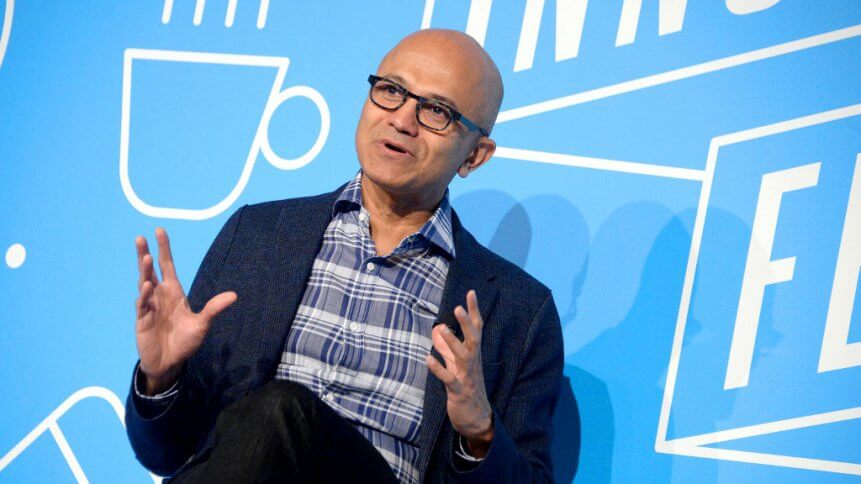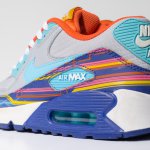Has sustainability become a new selling point?

This week, the annual World Economic Forum in Davos, Switzerland, once again gathered the world’s political and business elite. The event that once hit the headlines for selling $43 hot dogs had a much more modernized agenda this year as sustainability dominated conversations.
Activist Greta Thunberg reiterated her message that “our house is still on fire,” and Prince Charles warned business leaders on the importance of combating the climate crisis.
A recent report also revealed that the global economy is consuming 100 billion tons of materials a year. The message to businesses was crystal clear. If you are not part of the solution, you are part of the problem.
Outside of Davos, we are also witnessing the rise of the ethical consumer who is increasingly expecting responsible and sustainable business practices from brands. The increasing awareness of our responsibilities both in and out of the office is creating an appetite for greener and ethical consumption.
The business of sustainability
Microsoft leads the way with its ambitious plans to forge innovative collaborations with businesses across and beyond its supply chain to become “carbon-negative” by 2030. Nestlé is investing up to US$2.64 billion to create a market for food-grade recycled plastic, and hotel chains are beginning to remove travel-sized toiletries from rooms.
Kevin Johnson, CEO of Starbucks Coffee Company, also wrote to its partners, customers, and stakeholders outlining plans to make the company more sustainable. Cutting back on dairy products and promoting reusable packaging highlights Starbucks’ aspiration to store more carbon than they emit and eliminate waste.
By contrast, Coca-Cola’s head of sustainability advised without irony that the company will not ditch single-use plastic bottles because consumers still want them. An angry backlash online saw many accuse the company of not taking responsibility for the 120 billion plastic Coke bottles polluting our planet every year.
Something big is happening. Reports suggest that an incredible 88 percent of consumers care about the environmental impacts of brands. However, these changes are also creating opportunities for businesses to leverage technology to do more with less and embark on a journey of sustainability.
How big brands and start-ups are building a sustainable future
AB InBev, the world’s largest brewer, realized that it couldn’t solve its sustainability problems on its own. But it turned to the sustainability start-up community to mobilize the world’s brightest minds to increase efficiency; and greener logistics.
“Today’s global sustainability challenges provide us with some of the greatest opportunities for development and innovation. We want to empower driven and committed entrepreneurs who are solving problems in their own communities.” – Maisie Devine, Global Director of AB InBev’s 100+ Accelerator
Its accelerator program challenged start-ups to solve challenges in 10 key areas to help them meet their ambitious 2025 sustainability targets. Smart agriculture and water stewardship are areas where technology, combined with innovative thinking, is already making a big difference.
The rise of artificial intelligence, IoT sensors, and data analytics is also beginning to transform the way resources are both consumed and produced. But tech is merely the tool that is helping consumers, start-ups, and big businesses to work together and solve the biggest threat to our future.
YOU MIGHT LIKE

The pressure is mounting for sustainable supply chains
The rise of green technology and the sustainability market
The increasing concern for the future of our planet is prompting both consumers and businesses to embrace clean energy resources. Environmentally friendly technologies that improve energy efficiency, recycling, and renewable resources are already beginning to change the world as we know it.
According to a recent report, the green technology and sustainability market was valued at US$6.9 billion in 2018. But it is expected to grow at CAGR of 27 percent by 2026. As the demand for green technology solutions across the globe continues to rise, we are also starting to think differently about how much we consume.
Businesses need to be careful not to fall into the trap of making sustainability a unique selling point. Consumers also need to accept that it represents an opportunity to consume less, not just differently. The success of the experience economy highlights how it’s the things that we do with our friends and loved ones are more important than the stuff we buy that we don’t need.
Conscious consumerism is already here. Brands that put a sense of purpose at the heart of their business will the ones that secure a competitive advantage. But don’t be fooled into marketing sustainability as just another new selling point.
Prof Sir Ian Boyd delivered a few home truths that the reality we need to face is that we should be using less transport, eating less red meat, and buying fewer clothes. As we change to a greener mindset, businesses must not only step up to their responsibilities but also evolve to serve its customers in a very different future.
Current trends suggest that brands that fail to evolve with the mood of their customers will quickly fall out of favour. Businesses and consumers need to unite and form a symbiotic relationship to help protect their mutual home. But it will be technology at the heart of it all that will enable us all to do more with less.








